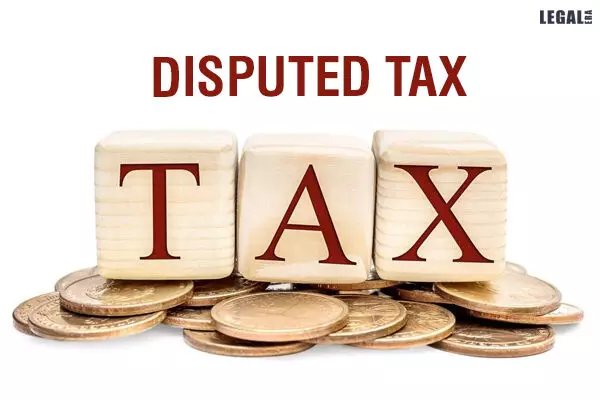- Home
- News
- Articles+
- Aerospace
- Artificial Intelligence
- Agriculture
- Alternate Dispute Resolution
- Arbitration & Mediation
- Banking and Finance
- Bankruptcy
- Book Review
- Bribery & Corruption
- Commercial Litigation
- Competition Law
- Conference Reports
- Consumer Products
- Contract
- Corporate Governance
- Corporate Law
- Covid-19
- Cryptocurrency
- Cybersecurity
- Data Protection
- Defence
- Digital Economy
- E-commerce
- Employment Law
- Energy and Natural Resources
- Entertainment and Sports Law
- Environmental Law
- Environmental, Social, and Governance
- Foreign Direct Investment
- Food and Beverage
- Gaming
- Health Care
- IBC Diaries
- In Focus
- Inclusion & Diversity
- Insurance Law
- Intellectual Property
- International Law
- IP & Tech Era
- Know the Law
- Labour Laws
- Law & Policy and Regulation
- Litigation
- Litigation Funding
- Manufacturing
- Mergers & Acquisitions
- NFTs
- Privacy
- Private Equity
- Project Finance
- Real Estate
- Risk and Compliance
- Student Corner
- Take On Board
- Tax
- Technology Media and Telecom
- Tributes
- Viewpoint
- Zoom In
- Law Firms
- In-House
- Rankings
- E-Magazine
- Legal Era TV
- Events
- Middle East
- Africa
- News
- Articles
- Aerospace
- Artificial Intelligence
- Agriculture
- Alternate Dispute Resolution
- Arbitration & Mediation
- Banking and Finance
- Bankruptcy
- Book Review
- Bribery & Corruption
- Commercial Litigation
- Competition Law
- Conference Reports
- Consumer Products
- Contract
- Corporate Governance
- Corporate Law
- Covid-19
- Cryptocurrency
- Cybersecurity
- Data Protection
- Defence
- Digital Economy
- E-commerce
- Employment Law
- Energy and Natural Resources
- Entertainment and Sports Law
- Environmental Law
- Environmental, Social, and Governance
- Foreign Direct Investment
- Food and Beverage
- Gaming
- Health Care
- IBC Diaries
- In Focus
- Inclusion & Diversity
- Insurance Law
- Intellectual Property
- International Law
- IP & Tech Era
- Know the Law
- Labour Laws
- Law & Policy and Regulation
- Litigation
- Litigation Funding
- Manufacturing
- Mergers & Acquisitions
- NFTs
- Privacy
- Private Equity
- Project Finance
- Real Estate
- Risk and Compliance
- Student Corner
- Take On Board
- Tax
- Technology Media and Telecom
- Tributes
- Viewpoint
- Zoom In
- Law Firms
- In-House
- Rankings
- E-Magazine
- Legal Era TV
- Events
- Middle East
- Africa
On remittance of 25% disputed tax, more burden cannot be imposed during pendency of appeal: Telangana High Court

On remittance of 25% disputed tax, more burden cannot be imposed during pendency of appeal: Telangana High Court
Without providing the opportunity of a personal hearing to the petitioner, the respondent demanded Rs.14 lakh
The Telangana High Court has held that further burden cannot be imposed during the pendency of an appeal on the remittance of 25 percent of disputed tax.
The petitioner, SAS Infra Projects India, is a private limited company and a registered dealer under the Telangana Value Added Tax Act (VAT), 2005. It is engaged in the business of preparation of ready-mix concrete and execution of earth works.
For the assessment years 2009-2010 to 2010-2011, the respondent passed an order holding that an amount of Rs.1 lakh was an excess tax paid by the petitioner. In the show-cause notice, it alleged that the insurance claim received by the petitioner was taxable.
The respondent proposed to levy a tax on the sale of old tyres, oil, and scrap items sold by the petitioner. Besides, it also proposed to levy tax on transportation charges.
While objecting to the proposal of the respondent, the petitioner submitted that without granting the opportunity of a personal hearing, the respondent passed the order revising it for the tax period and raising a demand of Rs.14 lakhs.
Aggrieved by the order, the petitioner appealed before the Telangana Value Added Tax Appellate Tribunal constituted under the VAT Act. For maintaining the appeal before the tribunal, as a pre-condition, the petitioner paid 25 percent of the disputed tax.
The bench comprising Chief Justice Ujjal Bhuyan and Justice N Tukaramji observed, "Merely because the petitioner has availed the remedy provided by the statute, there should not be an additional burden on it. The petitioner has already deposited 25 percent of the disputed tax and considering that the larger issue is pending before this court, insisting on further payment by the petitioner during the pendency of the appeal would not be just and proper."



